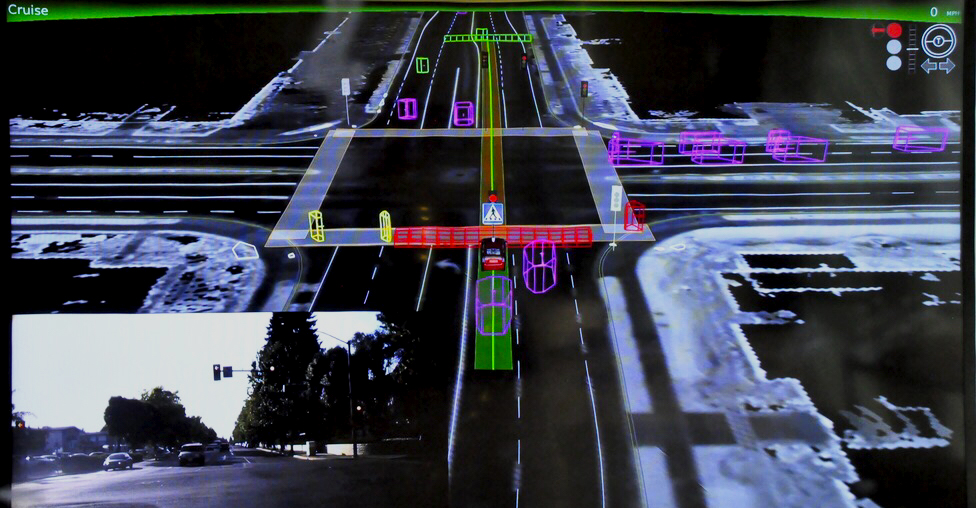MIAMI — Sept. 18, 2018 — The John S. and James L. Knight Foundation today announced a five-year, $5,250,000 initiative that brings residents to the center of self-driving vehicle pilot projects happening in five U.S. cities: Detroit; Long Beach, California; Miami; San Jose, California; and Pittsburgh.
The investment is the largest of Knight Foundation’s efforts to develop people-centered Smart Cities, which aims to harness the growth of digital technology to improve how communities respond, connect to and engage with residents.
The pilot projects will be designed to engage local residents around self-driving car deployments to ensure that they reflect community input and meet local needs. Leaders from the five pilot cities will share what they learn and meet regularly to generate insights and lessons for other communities trying to keep up with the increasing pace of testing and deployment of self-driving vehicles.
The initiative comes at a pivotal moment for defining the role of residents in the development and roll out of autonomous vehicles. While there is growing interest and investment in self-driving vehicles — with more than 70 cities deploying pilots worldwide — cities are struggling to fully capture the technology’s long-term impacts. According to a National League of Cities report that assessed the transportation plans of 68 large U.S. cities, only six percent of plans considered how driverless vehicles would affect urban mobility. Now is a key time to bring residents and cities into the conversation.
“Autonomous vehicles are one of the most disruptive technologies of our time, holding significant implications for the way we move, work and interact within communities,” said Lilian Coral, Knight Foundation director for national strategy and technology innovation. “Important conversations are happening among government and industry on what these changes mean for the future, but residents have largely been left from the table. Without their input, we risk designing cities for new kinds of cars, rather than for people.”
The five cities will engage residents on the following pilot projects, all of which involve some form of autonomous vehicles:
- Detroit: To address challenges getting to/from bus stops that connect Detroiters to employment hubs.
- Long Beach, California: To provide residents with more short-distance travel options by better integrating electric or human-powered transit (e.g. bikes, scooters, etc.) and other transportation methods, while reducing greenhouse gas emissions; improving air quality; and creating a safer, healthier, and more sustainable city.
- Miami: To develop driverless, on-demand shuttles as an alternative to buses that drive a fixed route.
- Pittsburgh: To develop sustainably and support neighborhoods by slowing the growth of single-occupant vehicle trips.
- San Jose, California: To better integrate autonomous vehicles with other forms of transit and help improve public life by connecting residents to jobs, and destinations for retail and nightlife, in downtown San Jose.
The participating cities were selected based on their level of readiness, openness to incorporating a resident-centered approach and connection to Knight Foundation. Four of the five participating communities are places where Knight regularly invests and has a physical presence. Pittsburgh was selected to join the cohort as the first American city to allow self-driving Uber vehicles on its streets.
“Knight believes that a true Smart City puts people first,” said Sam Gill, Knight Foundation vice president for communities and impact, and senior adviser to the president. “Self-driving cars have the potential to remake the face of cities. We want to work with city leaders to ensure those changes respond to residents — instead of putting residents at the whims of technology. Further, by involving residents on the front end, cities can facilitate a smoother rollout of new technologies and programs on the back end.”
While each city will develop a tailored strategy to engage its residents, the projects share a common objective: to creatively foster community engagement; to use technology to better understand local needs and preferences; and to establish best practices for other cities looking to innovate.
About the John S. and James L. Knight Foundation
Knight Foundation is a national foundation with strong local roots. We invest in journalism, in the arts, and in the success of cities where brothers John S. and James L. Knight once published newspapers. Our goal is to foster informed and engaged communities, which we believe are essential for a healthy democracy. For more, visit kf.org.
Contact:
Anusha Alikhan, Director of Communications, John S. and James L. Knight Foundation, 305-908-2646, [email protected]
Image (top): Photo from autonomous vehicle exhibit at San Jose’s Computer History Museum. Credit: Justin Cook
-
Community Impact / Article
-
Community Impact / Press Release
-
Community Impact / Article



